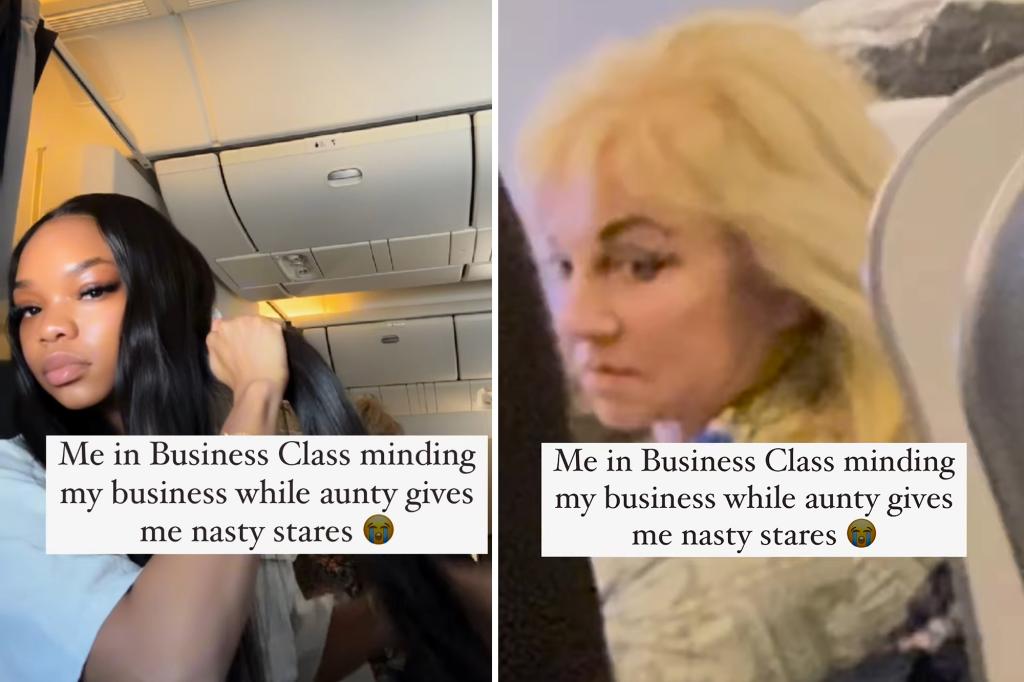The incident involving a female passenger combing her hair in business class and subsequently shaming a fellow passenger for giving her disapproving looks has ignited a heated online debate about appropriate behavior in shared, confined spaces like airplanes. The passenger, an influencer with a significant online following, documented the encounter in a video that quickly went viral after being re-uploaded to various social media platforms. In the video, the influencer is seen grooming her hair while her seatmate looks on with apparent disgust. The influencer’s attempt to garner sympathy and portray herself as the victim backfired spectacularly, with the majority of online commentators criticizing her actions as inconsiderate and unhygienic.
The core critique revolved around the influencer’s choice to comb her hair in a confined public space, particularly one where food is served. Many commenters argued that such grooming practices should be confined to private spaces like restrooms, emphasizing the potential for loose hair to contaminate the surrounding area, especially during meal service. They deemed the act “distasteful” and “tacky,” highlighting the importance of maintaining hygiene and respecting fellow passengers in a shared environment. The tight quarters of an airplane cabin, combined with the proximity to food, amplified the perception of the hair-combing as unsanitary and inconsiderate.
Beyond the hygiene concerns, the influencer’s decision to film the encounter and publicly shame her fellow passenger also drew criticism. Commenters accused her of stirring unnecessary drama and attempting to manipulate the situation to portray herself as the victim. They pointed out that her actions, specifically setting up a camera and combing her hair in a shared space, were the catalyst for the negative attention she received. This, combined with her public shaming of the other passenger, fueled the backlash and further solidified public opinion against her. Many argued that her behavior belied a lack of class, despite being in business class.
The incident underscores a broader issue of declining etiquette and consideration for others in public spaces, particularly on airplanes. Air travel, often stressful and uncomfortable, frequently becomes a stage for displays of personal hygiene and grooming routines that many find inappropriate and offensive. From nail clipping and shoe removal to diaper changing, passengers increasingly seem to treat airplanes as extensions of their private spaces, disregarding the shared nature of the environment and the comfort of those around them. This disregard for social norms and common courtesy contributes to a tense and unpleasant travel experience for everyone.
The influencer’s attempt to position herself as the victim, claiming she was “minding her business,” further fueled the negative response. Commenters argued that her actions, including filming and posting the video, directly contradicted this claim. They highlighted that her public grooming routine and subsequent attempt to shame her fellow passenger constituted anything but “minding her business.” This attempt to deflect responsibility and portray herself as wrongly accused only served to intensify the criticism she received.
The incident serves as a reminder of the importance of mindful behavior in shared public spaces. While personal grooming is essential, certain activities are better suited for private settings. Respecting the comfort and hygiene of fellow passengers, particularly in confined spaces like airplanes, should be a priority. The online backlash against the influencer demonstrates a growing intolerance for inconsiderate behavior and a desire for a return to more respectful and mindful interactions in public spaces. While air travel can be challenging, maintaining basic etiquette and consideration for others can significantly improve the experience for everyone involved. The incident sparked crucial dialogues about personal space, hygiene, and digital etiquette in the age of social media.


